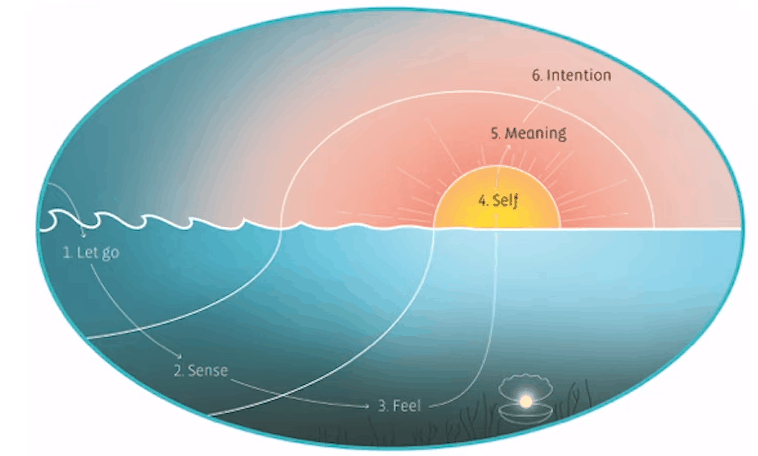
Image Credit: Dr. Rosalind Watts
Accept, Connect, Embody (ACE) model of therapy
If you’ve ever walked out of a therapy session feeling worse than when you walked in, you’re not alone. For many, especially those who are neurodivergent or have a history of trauma, traditional talk therapy can feel like trying to fit a square peg into a round hole. While talk therapy has its place and has helped countless people, it’s not a one-size-fits-all solution…
So, if you’ve been there, frustrated and wondering if therapy can ever work for you, take heart: there are alternatives. Let’s explore why talk therapy might not be hitting the mark—and what else is out there.
Why Talk Therapy Might Feel Off for You
- It’s All in the Head
Most talk therapy focuses on your thoughts: changing how you think, analysing patterns, and figuring out where it all started. But for many people, stress, anxiety, and trauma aren’t just in the mind—they’re in the body. If your body is stuck in fight-or-flight mode, no amount of mental reframing is going to make you feel safe. It can be like trying to calm a racing heart with logic: “Dear body, there’s no tiger chasing us right now.” Your body’s like, “Yeah, right.” - It Feels Too Clinical
Ever sat across from a therapist who felt more like a robot than a human? Maybe they nodded and took notes but didn’t quite seem to get you. For neurodivergent clients, who often experience the world in unique and deeply felt ways, this kind of “neutrality” can feel dismissive or even invalidating. - Cookie-Cutter Solutions
Have you ever been told, “Just keep a journal” or “Practice mindfulness” and thought, I’ve tried…it’s not that simple? Standard approaches don’t always account for your specific needs. If you’re neurodivergent or navigating trauma, suggestions that work for “normies” can feel impossible, or even triggering. - Power Dynamics
Some clients feel like therapy is something done to them rather than with them. If you’ve ever felt judged, misunderstood, or powerless in therapy, it can leave you wondering if it’s worth the effort.
Alternative Approaches to Explore
The good news? There’s more than one way to heal. Here are some alternatives to traditional talk therapy that might resonate with you:
1. Somatic Therapy
Stress and trauma live in the body, and somatic therapy works with that understanding. Techniques might include gentle movement, breathwork, or guided exercises to help you reconnect with your body, release tension, and feel safe. This can be life-changing for those who’ve felt disconnected or stuck.
2. Creative and Expressive Therapies
Sometimes words just don’t cut it. Art, music, dance, and drama therapies let you explore emotions and experiences in ways that feel more natural. You don’t need to be a great artist or performer—you just need to show up and express yourself.
3. Experiential Therapy
This approach gets you out of your head and into action. Through role-playing, guided visualizations, or even physical exercises, experiential therapy helps you process feelings and gain insight in a more embodied way. It’s especially helpful for working through trauma or exploring relational patterns.
4. Neurodivergent-Affirming Therapies
Look for therapists who understand and celebrate neurodivergent ways of thinking, feeling, and being. These therapists won’t try to force you into neurotypical molds but will work with your unique strengths and challenges. They might even work with you to co-create the therapy process, so it feels more collaborative and empowering.
5. Community and Peer Support
Healing doesn’t always have to happen in a therapist’s office. Many people find connection and growth in supportive communities. Whether it’s a neurodivergent meetup, a trauma-informed yoga class, or a creative group, being surrounded by people who “get it” can be incredibly healing.
A Note on Safety
If therapy hasn’t felt safe for you in the past, it’s not your fault. The therapeutic relationship should be a space where you feel seen, heard, and respected. If you’re exploring new approaches, make sure to ask potential therapists about how they create safety in their practice. Trust your gut: you deserve a therapist who meets you where you are.
Final Thoughts
If talk therapy hasn’t worked for you, it doesn’t mean you’re “beyond help” or “doing it wrong.” It just means you haven’t found the right approach yet. Healing is deeply personal, and there’s no one right way to do it. Whether you’re drawn to somatic work, creative expression, or something else entirely, there are paths to feeling better—paths that honor you.
If this resonates, explore what’s out there. You might just find the thing that makes all the difference.
